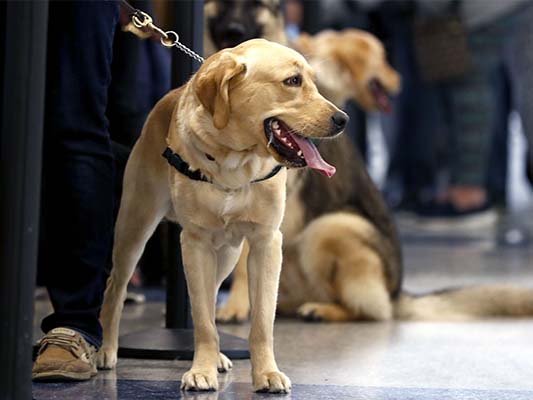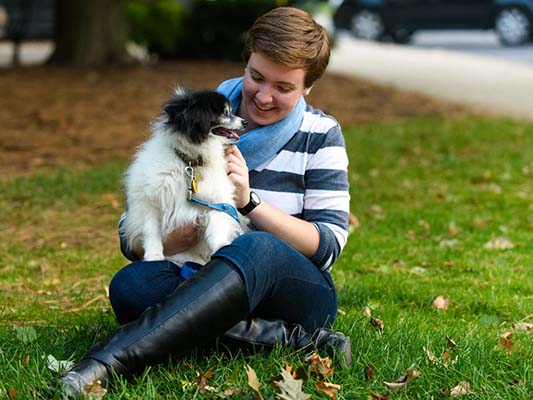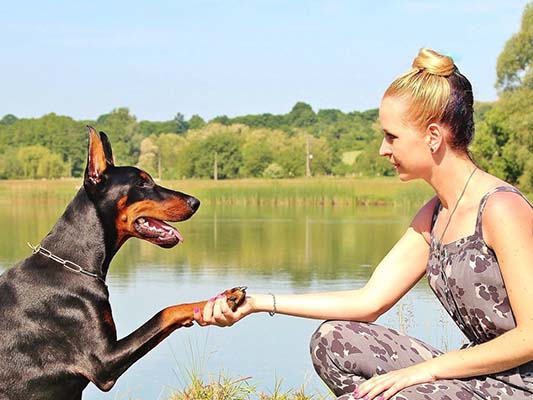Pets – Why do we own them? Who gains from the Human-Pet (Animal) relationship? What are the returns? Find here in the next few minutes.
Inspite of inhabiting urban living spaces, most of us wouldn’t mind to have dogs and cats for pets; after all the kids love it. But it is dogs more than cats who have found the most number of owners among humans. Thus dogs come to mind at the sounding of the word “pets’ and this is no coincidence. While the modern pet gas grown in social stature to be treated as a member of the family, evidence of the domestication of dogs likely dates back anywhere from 15,000 to 30,000 years.
The prehistoric dog-like creatures themselves evolved from the Wolves, back a million years ago, but some believe that humans set out to domesticate the dog species through home “breeding” to bring about their specific traits, though this may not actually be the case. Dogs are scavengers by nature; one theory suggests that dogs began to follow humans from the time they were hunters & gatherers, and from then on the domesticated dog has evolved to be quite dependent upon humans.
Though Canines can still survive without human attention, they thrive with the care humans can provide. Regardless of how it all started, the human-canine bond has blossomed and strengthened over time and will likely continue to grow.
Putting the Canine-Human relationship under the scanner, it has been inferred that pets bring more to our lives than just a few laughs as they do something silly and pose for the camera. They give us a better quality of life and come with a dose of health benefits too as many may not be aware. It has also been noted that the dogs provided their human owners with a strong sense of self-esteem, belonging and a meaningful existence.
What can Pets Do For Humans?
This dynamic million-year-old human-animal bonding is a mutually beneficial and positively influences the health and well-being of both. While many of us intuitively understand the benefits of positive interactions with animals in our lives, an emerging body of research is recognizing the impact the human-animal bond can have on individual and community health.
It is Science that has proved beyond doubt, that many health benefits accompany pet ownership. We all know, that many government departments in many countries actively employ, maintain and award dogs that provide servies that they are trained to, some of which are beyond the scope of humans. In service, dogs can assist those with mental or physical disabilities, work as search-and-rescue dogs, guard valuable property and protect us from harm by sniffing out threats and criminal activity. Even those small pet sized companion dogs can be trained to proudly defend our homes and families.
What science tells about Human-pet bond?

Dogs, more than anything else provides companionship that even humans can’t outdo; but this is only the beginning of the benefits humans derive from their pet dogs. Science has also proved that our dogs have the potential to help us relax, lower our blood pressure, keep us active and more. Dogs happily work for us, unmindful of the benefits we gain. We need to realize that animals can influence not just our happiness but also our health.
They found that compared with human support, the presence of pets was associated with lower perceived and actual responses to stress. Much like thinking about a friend might help you feel less negative after a bad social experience, thinking about a pet has been suggested to have the same effect.
Here are some macro-highlights from researches conducted on Dog-Human relationship over the years.
- Pet ownership, perhaps by providing social support, lowers blood pressure response to mental stress (Allen, 2001).
- Pet owners have higher one-year survival rates following heart attacks (Friedmann, 1980, 1995).
- Recognizing and nurturing the connection between animals and humans has potential implications for individual stability and health, improved economic outputs and healthcare cost savings (Takashima, 2014).
- Pet ownership, particularly dog ownership, may be reasonable for reduction in cardiovascular disease risk (Levine, 2013).
- Pet ownership was associated with a reduced risk for Non-Hodgkin’s lymphoma and diffuse large cell lymphoma (Trahan, 2008).
- Human health savings of $3.86 billion over 10 years have been linked to pet ownership as related to a decrease in doctor visits in studies in Austria and Germany (Heady, 2002).
Pet ownership not only gives us cause to exercise more often without being consciously aware of it as exercise, offers an antidote for loneliness, but also gives us an unconditionally loving companions to care for. Many animal-assisted interventions and therapies are being tried and developed that bring about healthier returns than competition. There are the sick who seek animal services to lessen worry, anxiety, and pain.
Many decades of monitoring pet owners has brought us to believe from stats that pet owners had significantly lower baseline heart rate and blood pressure than those who did not have pets. Also, they had lower “reactivity” to the stress tests and returned to baseline levels more quickly.
Many new researches are beginning to throw up startling facts including the truth that pet owners are good at maths, which means they made significantly fewer errors during the mental arithmetic challenge, as part of a research. Participants who performed the tasks with just their spouse present instead of their pets, tended to make the most errors. Here are more facts arrived at from the Pet-human relationship.
- A therapy dog has a positive effect on patients’ pain level and satisfaction with their hospital stay following total joint arthroplasty (Harper, 2014).
- Fibromyalgia patients spending time with a therapy dog instead of in an outpatient waiting area at a pain management facility showed significant improvements in pain, mood and other measures of distress (Marcus, 2013).
- A walking program that matched sedentary adults with therapy animals resulted in an increase in walking over a 52 week graduated intervention with the participants stating their motivation for adherence was “the dogs need us to walk them” (Johnson, 2010).
- The presence of an animal can significantly increase positive social behaviors among children with autism spectrum disorder (O’Haire, 2013).
- Children made fewer errors in match-to-sample categorization task in the presence of a dog relative to a stuffed dog or human (Gee, 2010).
- Dogs serve as both a source of motivation and a highly salient stimulus for children, allowing them to better restrict their attention to the demands of the task (Gee, 2012).
- Therapy animals in pediatric cancer studies improved motivation to participate in treatment protocol, to maintain their motivation over time, and to want to “get better” or stay optimistic (Sobo, 2006), (Barker, 2008).
Benefits of the Human-Animal Bond

The emotional ties that owners feel towards their pets may be somewhat independent of the type of animal involved, but the way the animals feel about their owners will be markedly different from one species to another. Their unconditional love and the fact that they don’t judge us make pets the best support system during stressful times.
Pets can help increase opportunities for exercising and outdoor activities. Take a drive through a community in the morning or evening and there are people out walking their dogs on a regular basis. Whether you’re dragging a toy around your house for your cat or taking your dog on a casual walk, you’re getting some exercise. Those with dogs tend to get more exercise and health benefits than those who do not have them. They also found that older adults who lived with dogs tended to have better mobility than those who didn’t have a dog.
Having a pet also increases opportunities for socialization. People often stop to talk to others who have pets, and pets are great at keeping people from feeling alone. Pets allow you to be responsible for someone other than yourself. They bring you to appreciate the innocence in the world. Pets, dogs in particular, not only bring us companionship but also gives us emotional support, reduce our stress levels, sense of loneliness and help us to increase our social activities and add to a child’s self-esteem and positive emotional development. In return, as responsible pet owners we need to ensure that our animals are kept healthy, fit, get nutritious food, love and affection and proper housing and care.





























